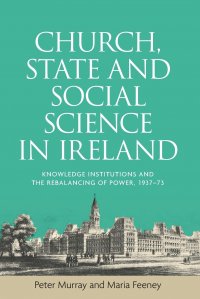This book examines how the balance of power between the Irish state and the Catholic Church has shifted since the middle of the twentieth century, through a case study of knowledge institutions engaged in social science teaching and research. Inhabiting a sphere once monopolised by the Church, such institutions became increasingly aligned with state projects from the end of the 1950s. As a result, when the Church later sought to use sociological arguments to resist liberalising changes in law and policy, opposing views were able to claim the legitimacy of expertise and the issue of public trust became crucial.This is the first book to examine church–state relations in detail since John Whyte's seminal study Church and State in Modern Ireland was revised in 1980. Since then both Church and state archives have been opened and a mass of important new material has become available to scholars. This material supports a significantly different interpretation of the dynamics of the church–state relationship to that put forward by Whyte. With a cast of characters as diverse as Sean Lemass, T. K. Whitaker, Archbishop John Charles McQuaid and Father Denis Fahey, Church, state and social science in Ireland will appeal to a wide readership interested in modern Irish history. It is also aimed at academics and students for whom it can serve as a textbook on national and international contexts of the emergence of the contemporary 'developmental' Irish state. Это и многое другое вы найдете в книге Church, state and social science in Ireland. Knowledge institutions and the rebalancing of power, 1937-73 (Peter Murray, Maria Feeney)
Church, state and social science in Ireland. Knowledge institutions and the rebalancing of power, 1937-73 Peter Murray, Maria Feeney
Подробная информация о книге «Church, state and social science in Ireland. Knowledge institutions and the rebalancing of power, 1937-73 Peter Murray, Maria Feeney». Сайт не предоставляет возможности читать онлайн или скачать бесплатно книгу «Church, state and social science in Ireland. Knowledge institutions and the rebalancing of power, 1937-73 Peter Murray, Maria Feeney»
